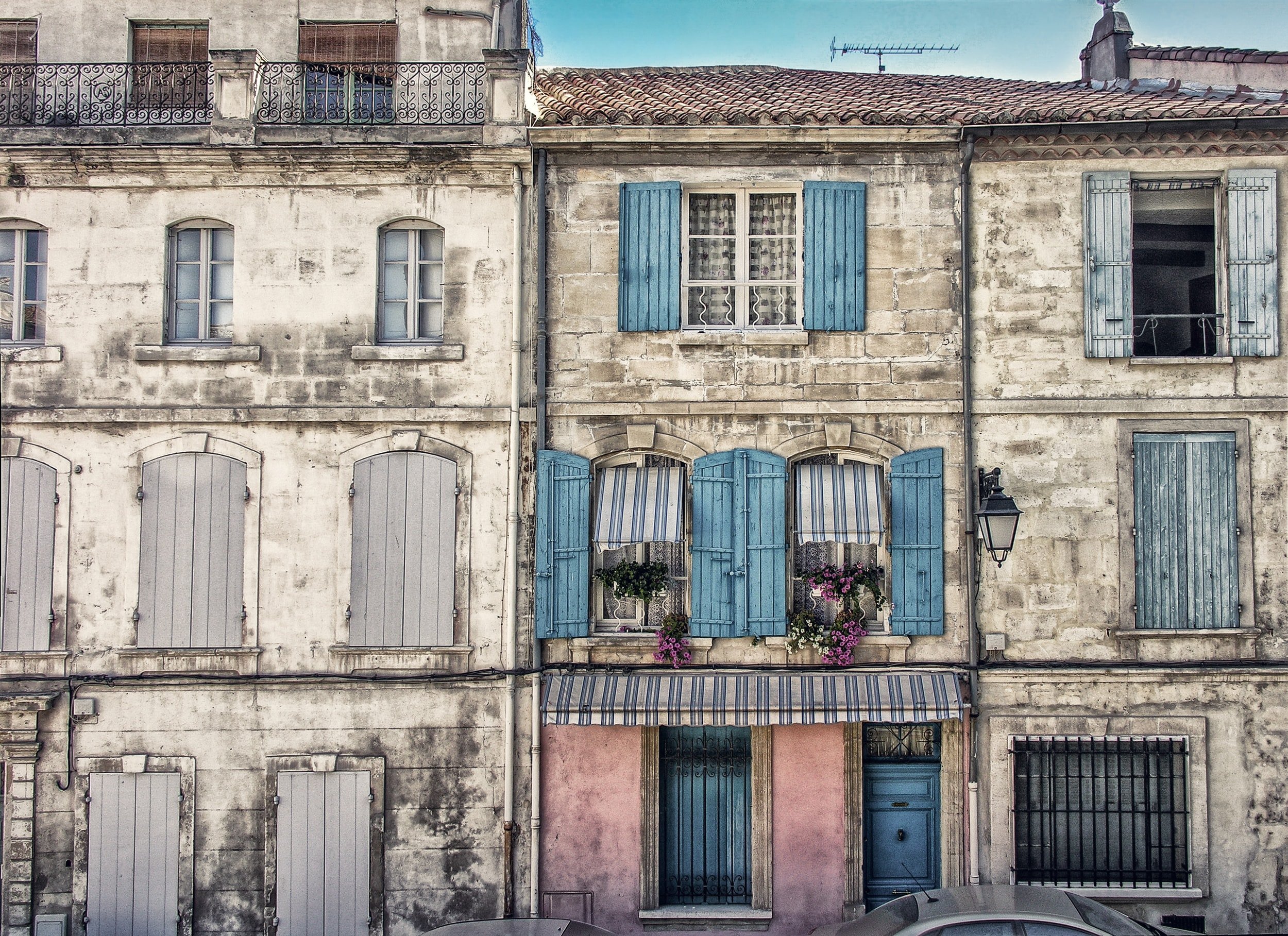Defining Comfort in France
We came to France knowing we would leave some comforts of the United States.
We sold our house in the United States, one we had renovated with new floors, new kitchen, new bathrooms, to settle in a small French guest house built in 1667 with thick stone walls, tricky electricity issues, and 2 bedrooms and 1 living space. Even our host, after looking at pictures of our US home, commented, "You left all that to come here?"
When you discover there is only one closet for all 5 family members, ingenuity kicks in. After nearly 3 weeks of unpacking and re-arranging, I discovered a simple system to avoid the searing and persistent yell, "Mom, where are my clothes?" In a house small enough that everyone has to be quiet for a Zoom call and 2 TVs can't run at the same time without a lot of noise interference, you start picking up books to read. When traffic is incredibly unpredictable and constant in Paris, you discover your oldest likes taking the public bus back and forth to school and prefers it over being driven. For our youngest, it's a scooter ride to school that he relishes and I squeeze a good 20-minute brisk walk in the mornings and afternoons for school pickup.
A lovely new friend, a Dutch American who has lived in Paris for 20 years, shared a key to adapting to France, or anywhere that is truly foreign to you. Don't spend all your time comparing what is different from your place of origin. Comparison is the thief of joy. Instead assess the good, discard what is irrelevant, and find a way to manage the bad.
I realized in moving to Paris I need to focus on people, not things. The little guest house will never be as clean or convenient or as cozily furnished as my home in the US was, but is that really important? I could spend all day cleaning a 400-year-old house to my standards, or I can drop the scrubbing brush to go to an International Women's tea and meet women from Korea, Ukraine, and Germany, who all speak better French than English and generously offer insider tips and encourage my language learning.
I could commiserate about my material annoyances and efficiency expectations with other American ex-pats over a cafe latte because complaining about how different France is from the US is an art form in Paris. Or I could hop on the metro to meet the American Association of Women in Europe, on Avenue New York with a view of the Eiffel Tower, and introduce myself to American women who are "lifers in Paris", Americans living long term in France, even one American lady who has lived in Paris for over 60 years! I leave with a bilingual baking cookbook tucked inside my purse, along with an incredibly useful guide for families navigating a bilingual education. Yes, we are headed down that road of being a bilingual household.
My new baking cookbook answers already time-consuming struggles like the earth-shattering question of "What is a chocolate chip called in French?" because they are not readily available or "How many tablespoons is 80 grams of butter?" because butter isn't sold in convenient 8 tablespoon packets. I love the philosophy of this baking cookbook and the spirit of this AAWE organization: the French don't have to be excluded from the wonderful world of American culture (delicious cookies), but as Americans, we can cultivate a thriving bi-cultural community in Paris to build bridges and make deep friendships.
We are not living in a fabulous French apartment, speaking French fluently, or do we know all the quick ways to get things done. In the United States, I didn't realize how much of my to-do list or stress in life in the United States revolved around making my life as smooth as possible so I could function on auto-pilot and not have to think. I think this is true not for just Americans, but anyone who lives in their country of origin. We expect things to work a certain way that feeds our comfort and convenience based on the monoculture we have always known.
But when we drop ourselves into a foreign culture, all those presuppositions are thrown out the window. So when we arrived in France, and I can't figure out how to marry a small refrigerator with a very hungry 14-year-old teenage boy, it means our recipes or snacks will have to change. A large (not even supersize) bag of chips is far more expensive in France than in the US, and I can't stop by the grocery store once a week to load up on super-size quantities that don't exist in regular French supermarkets.
Funny enough, as a Christian, I shouldn't be surprised daily that my life isn't running smoothly. In our worldview, we expect things to be broken because we already know a little piece of heaven is unattainable on this earth. Our joy is not connected to things or circumstances, but a person who died and rose again. A person is at the center of our truly radical faith, and that means chasing after people, hearing people's stories, encouraging people in their burdens, pointing them to the deepest sense of joy is the real key to this life's joy.
We have purposely decided not to live in an American bubble in France, only speaking English 98% of the day, sending our kids to American or English speaking schools, or only connecting with English-speaking foreigners. You actually can survive in Paris with only English! But for us, you still miss meeting 80% of the people in Paris and so much of daily French culture associated with the French language. So we are trying our best to immerse ourselves in French culture - even the long days in France - all the while straddling what bi-cultural really means.
As an American, I have learned we can never take for granted our most valuable resource: our communities. People matter. Finding out people's stories and their lived history helps us build better communities. I hope we Americans never lose sight of our greatest asset and continue to find ingenious ways to invest in people, just as our family is trying to do here in France.
Sometimes we give up a little comfort, endure a little convenience, see things in a new way, and sacrifice for the greater good. When I strip away a lot of my comforts, I can see more clearly - and I hope I don't lose this clarity as we continue to settle into France.
Linda T serves as a GlobalGrace missionary in Paris, France


